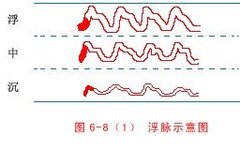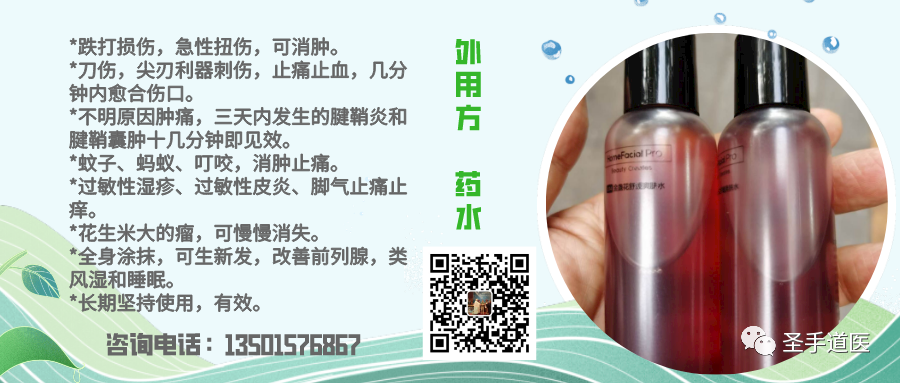
It is often said that pulse diagnosis in Traditional Chinese Medicine (TCM) is mysterious; however, once you understand the principles behind TCM pulse diagnosis and the information it aims to gather, this confusion will dissipate.
The practice of pulse diagnosis has been passed down since ancient times, demonstrating its robust vitality and scientific basis. TCM has long utilized this unique skill. The four diagnostic methods—observation, listening, inquiry, and palpation—are universally applied techniques, with palpation being particularly remarkable.
Common Abnormal Pulse Patterns
Floating Pulse (Fu Mai)
This pulse is characterized by a superficial pulse that can be felt lightly but becomes weaker with heavier pressure. Generally, it indicates that the pathogenic factor is on the surface. A strong floating pulse suggests a full exterior condition, while a weak floating pulse indicates an empty exterior condition.
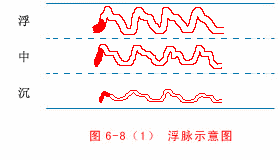
Deep Pulse (Chen Mai)
This pulse is characterized by a deep pulse that cannot be felt with light pressure but is palpable with heavier pressure. It typically indicates an interior condition; a strong deep pulse suggests a full interior condition, while a weak deep pulse indicates an empty interior condition.
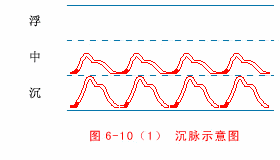
Slow Pulse (Chi Mai)
This pulse is characterized by a slow rate of fewer than 60 beats per minute. It often indicates a cold condition, as cold can slow blood flow. A strong slow pulse suggests a cold accumulation condition, while a weak slow pulse indicates a yang deficiency condition.
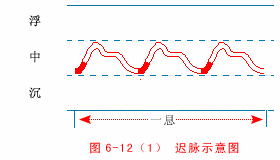
Rapid Pulse (Shu Mai)
This pulse is characterized by a rapid rate of over 90 beats per minute, with a quick onset and offset. It often indicates a heat condition, as heat can accelerate blood flow. A strong rapid pulse suggests a full heat condition, while a weak rapid pulse indicates a vacuous heat condition.
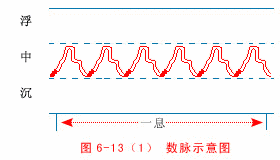
Thin Pulse (Xi Mai)
Also known as the fine pulse, it feels like a thin thread, weak and lacking strength, yet still discernible. It is indicative of dampness and deficiency conditions, resulting from dampness obstructing the pulse pathway or from qi and blood deficiency failing to fill the pulse pathway.
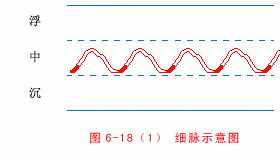
Surging Pulse (Hong Mai)
This pulse is broad and strong, with a vigorous rise and a decline, resembling a flood. It often indicates a condition of excessive heat.
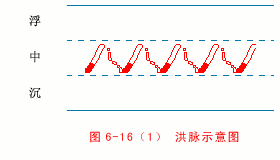
Wiry Pulse (Xian Mai)
This pulse is straight and taut, resembling a plucked string. It is commonly seen in patients with liver and gallbladder disorders, phlegm-fluid conditions, or pain syndromes.
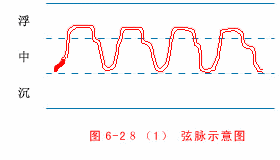
Slippery Pulse (Hua Mai)
This pulse flows smoothly, like beads rolling on a plate. It is indicative of conditions of excess heat, phlegm-fluid, food stagnation, or pregnancy.
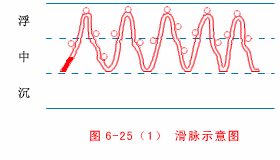
Choppy Pulse (Se Mai)
This pulse is characterized by a rough and uneven flow, like a light knife scraping bamboo. It indicates conditions of qi stagnation, blood stasis, or deficiency of essence and blood.
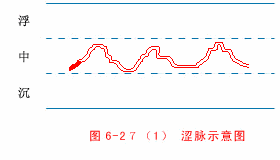
Weak Pulse (Xu Mai)
This pulse is characterized by a lack of strength in all three positions, barely perceptible under the fingers, representing a general state of weakness. It indicates a deficiency condition, primarily of qi or both qi and blood.
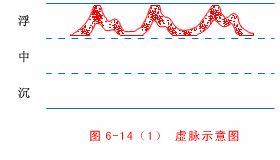
Full Pulse (Shi Mai)
This pulse is characterized by strength in all three positions, with a vigorous and solid pulse, representing a general state of strength. It indicates a full condition, suggesting that the pathogenic factor is strong while the righteous qi is not deficient.
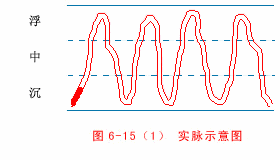

More Exciting Content
Waking up at 3 or 4 AM and unable to sleep until dawn? There are only three possible reasons!
Afraid of stroke? These two acupoints must be pressed regularly!
Men have a longevity acupoint, and women have an anti-aging acupoint!
Sun Simiao once said: This acupoint can treat everything! Three movements to open it, and all diseases will be hard to hide!
Medicinal dishes that help with sleep and relieve anxiety
An ancient formula that dispels cold and dampness, warms the spleen and stomach, and treats deficiency and obesity!
There is actually a “one-button shutdown and one-button cleanup” acupoint on the human body? Those who have pressed it find it miraculous!
Using this “acupoint” well, many ailments will resolve themselves without treatment!

